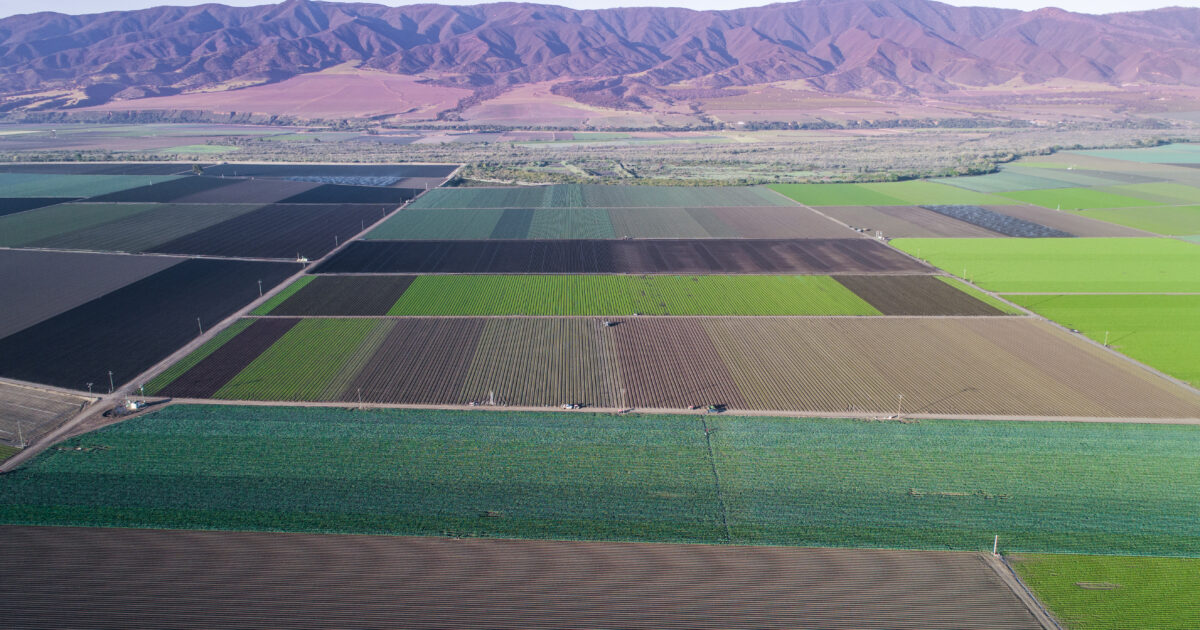Environmentalists examine unintended environmental consequences of flawed farm laws – Reason.com
[ad_1]
Two independent food policies, one here in the United States and the other in France, are criticized by environmentalists and sustainability advocates, who argue that the approaches they impose waste resources and money and do not improve the quality of the environment.
A Politics room last month targeted the U.S. Department of Agriculture’s Conservation Reserve Program (CRP), a 35 years program the USDA Explain “Pays rural landowners to convert ecologically sensitive cropland into long-term covers of grasses, trees and wetlands.”
As part of the PRC, Politics reports, “farmers agree to take conservation measures such as planting trees or grass which prevent soil erosion, improve water quality[,] or provide habitat for wildlife. In return, the FSA pays farmers rent for the 10 to 15 years that the land is listed and shares the costs of conservation changes.“
The principle behind the program seems quite simple. While crop growth typically requires soil, tillage, water, fertilizers, pesticides, fuel and other inputs – which can lead to erosion, runoff, gas emissions greenhouse effect and other negative externalities – then removing land from production in favor of planting native trees or grasses, will reduce or eliminate the need for these inputs and should eliminate the negative consequences of using these inputs. land for agriculture.
So why is the program not working? A 2017 analysis of CRP by the Environmental Working Group found that the program “failed to provide lasting protection to environmentally sensitive lands” and “wasted billions of taxpayer dollars.”
Low enrollment is a problem – and a problem with no clear solution in sight. When commodity prices fall, farmers are more inclined to withdraw some land from production and seek CRP money. This way they earn more money. But when commodity prices are high, as they are now, farmers bring more land into production and plant more crops. This way they earn more money.
There are other problems with CRP. For example, it was plagued by violations.
This is why, even though Politics notes Biden administration pushes CRP listing “as a climate solution”, environmentalists Politics spoke with for the article “don’t see it that way.” Many see the CRP as I do: a useless program that does not meet its objectives.
In the other example I teased in the lede, a New York Times room, published the same day as the article on the CRP’s failures, detailed how France’s senseless ban on using imported vines for 87 years has curbed not only the quality of the country’s wine, but also sustainability – and perhaps the future – of its vines and wines.
The Times The report portrays renegade French winemaker Hervé Garnier as the face of the “long-standing struggle against the French winery and its allies in Paris”. In a year when French wine production was devastated by frost and disease, the Garnier grape, the Times notes, are flourishing. That’s because Garnier is raising Jacquez grapes, an American hybrid variety that grows quite well despite the aforementioned challenges.
The problem? France banned the Jaquez hybrid in 1934 and went to great lengths to enforce this ban.
“The French government has attempted to uproot Jacquez and five other American grape varieties from French soil over the past 87 years, arguing that they are bad for human physical and mental health and produce bad wine,” he said. he added. Times reports. What bad? By banning these American vines in the 1930s, the French authorities claimed that they could cause “madness and blindness”, the Times reports. (This clearly false claim, that the Times recognizes as such, seems particularly French. As I detailed in a 2012 law review article, France once banned eating potatoes because of their “supposed ability to cause” not only leprosy, but also syphilis, narcosis, scrofula, premature death, infertility and rampant sexuality ” -although, in defense of the potato, not madness or blindness.)
“There really is no reason for its ban,” says Garnier. “Forbidden? I would like to understand why, especially when you see that the ban is based on nothing.”
Garnier is right. American varieties, whether grafted or crossed with native French vines, produce excellent wine, are resistant to cold, drought and pests, and could help France reduce its dependence on pesticides.
For my part, I think it is great that more publications, including the NY Times and Politics, reflect food, agricultural and environmental rules that aim to strengthen sustainability, but that do not keep their costly promises. Indeed, the premise of my 2016 book Biting The Hands That Feed Us: How Fewer Smarter Laws Would Make Our Food System More Sustainable is that laws and regulations at all levels of government tend to promote unsustainable outcomes while handcuffing people like Mr. Garnier who wish to engage in more sustainable practices. I will be to discuss the CRP and the vine ban in France, plus examples from my book, later this month in a pair of Federalist Society-sponsored lectures at Quinnipiac University Law School and the New England School of Law .
[ad_2]

